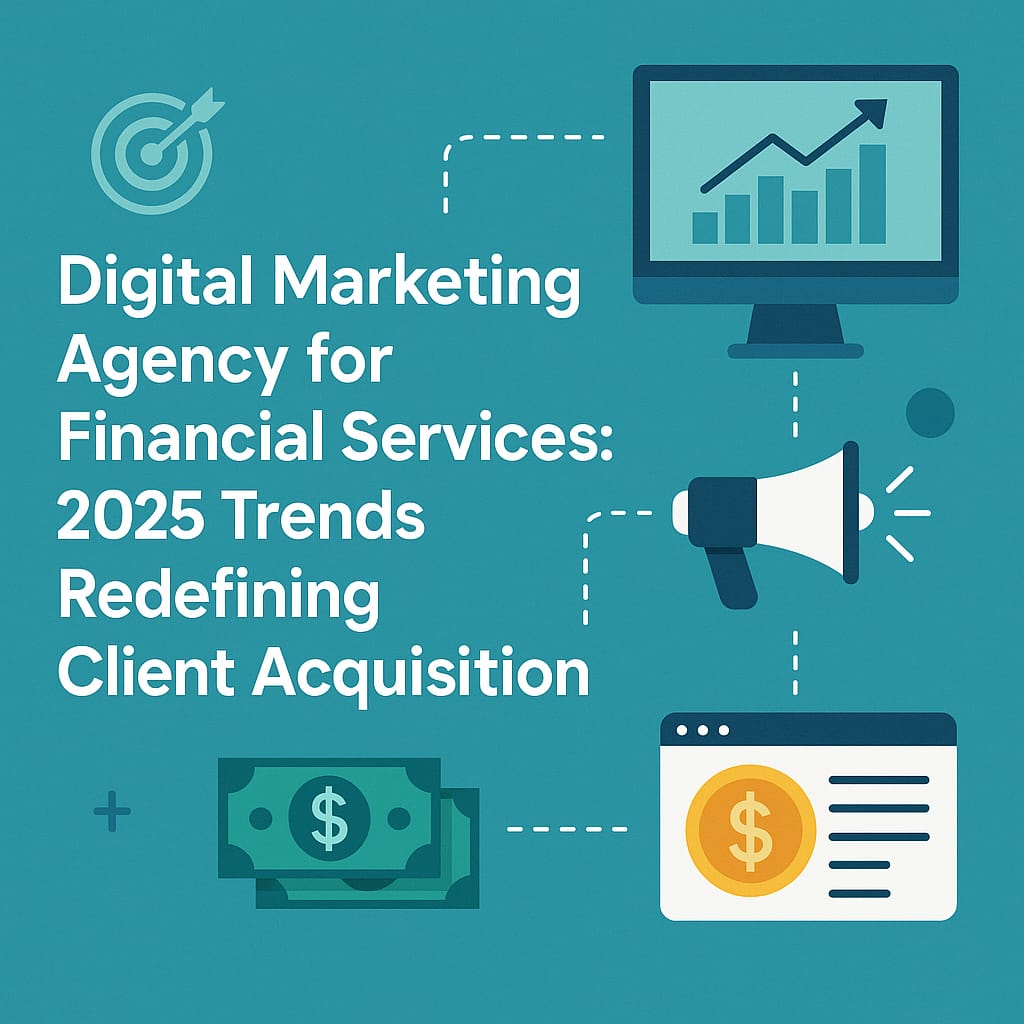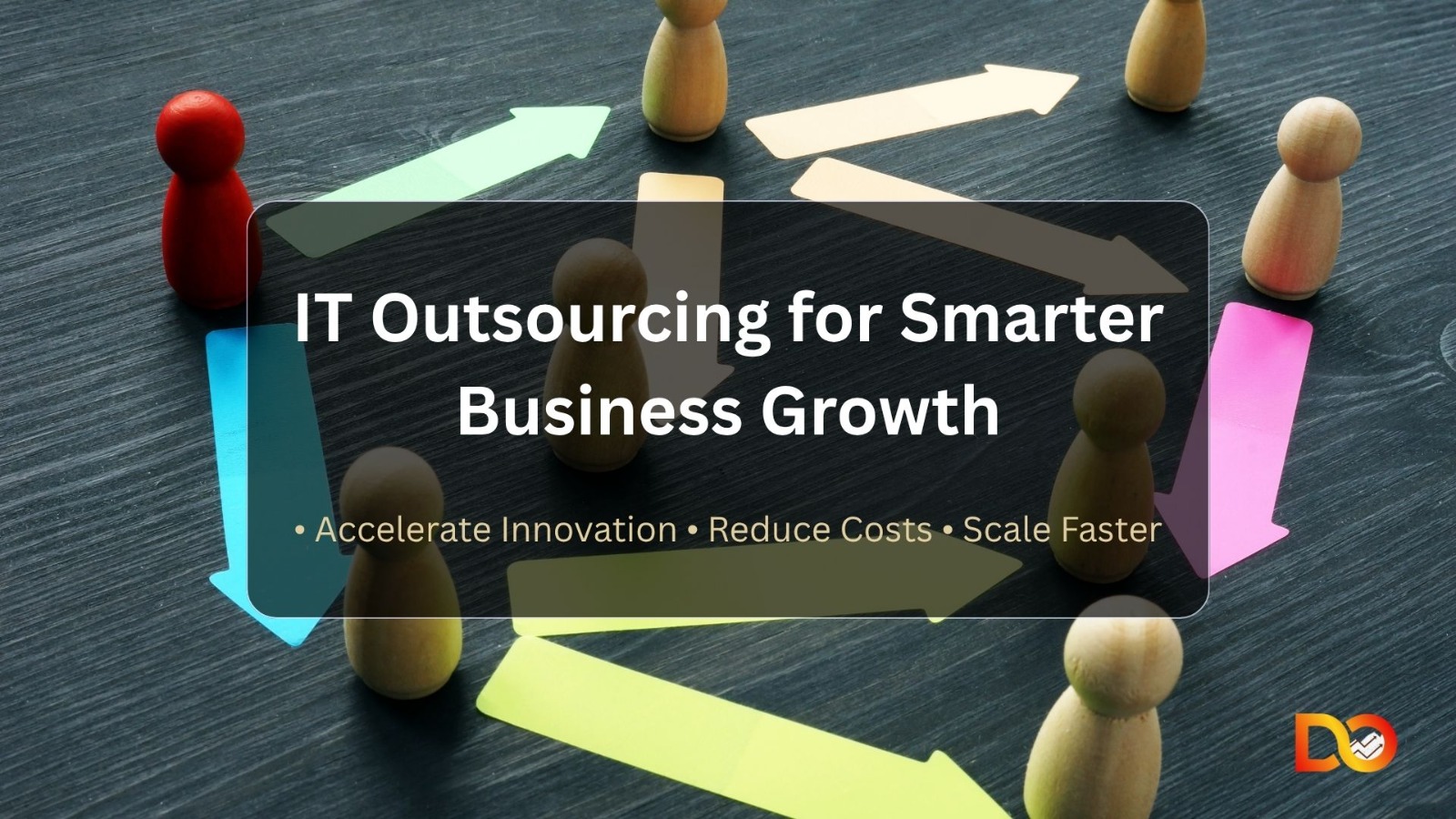Step into the future where AI predicts your next client, neuro-marketing decodes behavior, and compliance is automated before you blink. This isn’t science fiction—it’s the new reality for financial digital marketing in 2025.
Introduction: The 2025 Financial Marketing Landscape
In 2025, financial firms face AI-cluttered markets, stricter regulations, and clients demanding hyper-personalized experiences. Traditional tactics fail to rank for terms like “financial services” or convert skeptical, tech-savvy audiences.
This guide reveals how forward-thinking digital marketing agency for financial services use 2025’s breakthroughs to cut through noise, comply with global AI ethics laws, and drive ROI.
Top 5 Digital Marketing Strategies for Financial Services
- AI-Powered Predictive SEO: Anticipating Search Trends
Traditional SEO methods are reactive, but in 2025, AI-driven predictive SEO enables digital marketing agency for financial services to forecast and capitalize on emerging search trends.
Key Innovations
- Trend Prediction:
AI tools analyze vast datasets to anticipate shifts in search behavior, allowing for proactive content creation targeting terms like “post-CBDC retirement planning.”
- Voice and VR Optimization:
With the rise of voice-activated and virtual reality searches, AI ensures content is optimized for these platforms, enhancing visibility.
Tools to Leverage
- MarketMuse Quantum: Utilizes AI to forecast future SERP trends, guiding content strategy.
- BrightEdge GEN-3: Provides real-time compliance checks during content creation.
Strategy Implementation:
Develop dynamic content clusters that update based on AI-driven insights, ensuring your financial services digital marketing remains ahead of the curve.
- Neuro-Marketing: Connecting Emotionally with Clients
Understanding the emotional drivers behind financial decisions is crucial. Neuro-marketing employs neuroscience to craft messages that resonate on a subconscious level—making it a powerful tool for any digital marketing agency for financial services aiming to deepen client engagement.
Applications in Financial Services
- Neurosensory Behavior Mapping:
Use tools that track user gaze, click paths, and engagement zones to strategically place trust signals—such as advisor certifications and client testimonials—where users naturally focus most.
- Customized CTAs:
Tailor calls-to-action based on audience neuro-profiles, using phrases like “Start Your Legacy” to evoke emotional responses.
Impact:
Implementing neuro-marketing strategies can significantly boost engagement and conversion rates, making it a vital component of financial services digital marketing.
- Regulatory-Proof Content Engines: Ensuring Compliance
With evolving regulations, maintaining compliance with digital content is more critical than ever.
Challenges:
- Real-Time Regulatory Shifts
With financial regulations evolving rapidly across regions, staying up to date becomes difficult. Agencies must ensure their content adapts in real-time to reflect updates in laws.
- Content Auditing
Regularly reviewing and updating existing content to ensure ongoing compliance.
Solutions:
- Ethics-Aligned Content Frameworks:
Develop structured content creation guidelines based on regional compliance laws. This ensures all marketing material remains ethical, accurate, and legally sound from the outset.
- Ethics-First Chatbots:
Deploy intelligent chatbots trained exclusively on verified financial data and regulatory-approved content. These bots deliver accurate, compliant information to clients while maintaining transparency and reducing risk.
Strategy:
Implementing regulatory-proof content engines ensures that your financial services digital marketing remains trustworthy and compliant.
- Voice and Visual Search Optimization: The New SEO Frontier
With the growing use of smart assistants and visual platforms in 2025, financial service firms—and the digital marketing agency for financial services that support them—can no longer rely on traditional keyword strategies alone.Clients are now searching via voice commands like “best retirement advisor near me” or uploading screenshots for visual queries.
Action Steps:
- Optimize for conversational keywords and natural language queries using schema markup.
- Implement alt-text and image SEO to make infographics and charts discoverable via visual search.
- Focus on FAQ-rich content to answer common financial questions users ask through voice.
SEO Synergy:
Rank higher for long-tail keywords like “Certified fiduciary financial advisor online” and gain visibility in featured snippets and voice results.
- Zero-Party Data: Building Trust Through Transparency
With the decline of third-party cookies, collecting data directly from clients (zero-party data) has become essential.For any digital marketing agency for financial services, this approach offers a transparent and compliant way to understand client needs more deeply.
Methods:
- Interactive Quizzes
Engage clients with tools like “What’s Your Financial Personality?” to gather insights.
- Gamified Apps
Develop financial literacy games that encourage users to share information voluntarily.
Benefits:
- Enhanced Personalization:
Use collected data to tailor marketing efforts, improving client experiences.
- Compliance:
Zero-party data aligns with privacy regulations, reducing legal risks.
Strategy:
Incorporating zero-party data collection into your financial services digital marketing strategy fosters trust and enables more effective personalization.
Advanced Enhancements for Digital Marketing for Financial Services
Standing out requires more than just core strategies; in 2025’s competitive landscape, a digital marketing agency for financial services must implement advanced enhancements to deliver deeper personalization, build stronger trust, and stay ahead of rapid digital changes. These forward-thinking tactics are essential for driving growth and client loyalty in a highly regulated, evolving industry.
- AI-Enhanced Personas
Unlocking True Personalization in Financial Campaigns
In today’s landscape, digital marketing for financial services demands more than traditional audience segmentation. Agencies now use AI-generated personas, created through behavior analytics, transactional patterns, and real-time intent signals. These hyper-personal profiles allow financial services marketing agencies to tailor campaigns that resonate with distinct client segments—from Gen Z investors focused on ESG to high-net-worth retirees.
The result? Personalized outreach that increases engagement and trust.
- Content Atomization
Amplify, Repurpose, Dominate
Instead of producing endless new content, digital marketing agency for financial services are embracing content atomization. One valuable blog becomes 20+ micro-assets—from LinkedIn slides to podcast clips and Instagram reels. This multiplied exposure supports long-tail keyword strategies, and strengthens topic authority across platforms.
- Trust Metrics
Building Credibility Across Digital Touchpoints
For financial services, credibility is everything. Google’s emphasis on E-E-A-T (Experience, Expertise, Authoritativeness, and Trustworthiness) makes it essential to integrate trust signals like professional certifications, credible sourcing, and transparent disclosures across all content. A fintech SEO agency can help financial services firms ensure that these elements are strategically placed to boost organic visibility and enhance client trust. This approach not only improves SEO performance but also ensures that clients view your financial services brand as dependable and compliant.
- Augmented Reality Experiences
Redefining Client Engagement
As the industry embraces innovation, fintech SEO agencies are leveraging Augmented Reality (AR) to deliver interactive financial education tools. Whether visualizing compound interest or simulating tax strategies, AR creates high-impact user experiences. These immersive campaigns increase dwell time, promote spatial search rankings for queries like financial advisor near me, and differentiate your brand from the competition.
- Video-First Content
Capturing Attention and Driving Results
Video content has become the cornerstone of effective digital marketing for financial services. Agencies now lead with animated explainers, market insights, and expert interviews that are SEO-optimized with schema markup and captions. Targeting queries like “Should I get a financial advisor for wealth management” , these videos enhance engagement, improve SERP presence, and elevate the client’s digital footprint.
Conclusion: Leading the 2025 Financial Marketing Revolution
A digital marketing agency for financial services in 2025 doesn’t just follow trends—it anticipates them. By merging predictive SEO, neuro-marketing, and regulatory agility, your firm can own niches competitors haven’t even discovered yet.
The future of finance is digital — is your strategy ready? Let’s dominate 2025 together.
FAQ: 2025 Financial Services Digital Marketing
- How does AI differ in 2025 financial marketing?
AI in 2025 goes beyond automation—it predicts emerging search trends and user behavior. Financial services SEO companies use AI to proactively create content for future queries ensuring content ranks before demand peaks, especially for voice searches.
- Can small financial firms benefit from advanced marketing tech?
Absolutely. Even small firms can leverage tools like BrightEdge GEN-3 and AI-powered CTAs tailored to client neuro-profiles. These solutions allow smaller players to compete with larger financial services agencies using smart, data-driven strategies.
- Why is zero-party data crucial in 2025 marketing?
With third-party cookies phased out, zero-party data—collected directly through quizzes and gamified tools—is vital. Financial services SEO companies use this data to personalize content, improve rankings for long-tail keywords, and build meaningful client relationships without privacy concerns.
- How can neuro-marketing build trust in finance?
Neuro-marketing helps agencies create emotionally resonant content by analyzing subconscious triggers. Placing trust badges in high-visibility zones or customizing CTA language (“Protect Your Wealth”) boosts conversions. It’s a powerful trust-building tool for any financial services SEO company.
- How can financial services agencies stay ahead in voice and visual search?
To stay competitive, agencies must focus on natural language optimization and context-driven content. This includes using conversational search terms like “how to save for retirement” and ensuring content answers real user questions clearly and directly. For visual search, it’s important to optimize images with descriptive alt text, use structured data, and ensure all media is fast-loading and mobile-friendly. Financial brands that prioritize clarity, relevance, and accessibility are best positioned for this new search landscape.
- How is AR transforming client engagement in financial services?
AR is helping fintech SEO agencies create interactive, educational tools that make complex financial concepts easier to grasp—like visualizing compound interest or simulating tax outcomes. These immersive experiences not only boost user engagement and dwell time but also improve local SEO visibility for queries such as “financial advisor near me.” It’s a smart way to stand out in a competitive digital landscape.
- Why is video content essential for financial services marketing today?
Video content has become one of the most effective ways to connect with today’s audiences. Whether it’s a quick explainer, a market update, or a thought leader interview, high-quality video content grabs attention and builds trust. When enhanced with captions, structured data, and strategic keywords, it strengthens your search visibility. For financial brands, it’s a smart move to drive both engagement and credibility.


